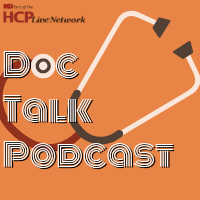Video
Socioeconomic Burden of Treatment Adherence in Schizophrenia
Author(s):
Transcript: John M. Kane, MD: Erin, please comment on the socioeconomic burden of nonadherence and multiple relapses. How does that affect costs associated with schizophrenia?
Erin C. Crown, PA-C: A number of individuals are on government-sponsored insurance, Medicare, and Medicaid. I live in State College, Pennsylvania, and we have Pennsylvania State University. It’s not out of the ordinary for me to see a young person newly diagnosed with schizophrenia who is commercially insured. But those are not the vast majority of this population. The cost of Medicare and Medicaid, the responsibility for cost of care, this becomes the government’s and tax payers’ responsibility. When individuals aren't adherent to their treatment regimens and multiple relapses occur, it comes with a cost associated with inpatient stays or incarceration, perhaps, because their psychotic symptoms have caused them to be violent or hostile, and they could have a charge brought against them.
Over time with repeated relapses, cognitive decline, and supportive decline from their social supports, we might begin to see a pattern of homelessness, and their physical health suffers. The ability to care for themselves is reduced, and we perhaps see metabolic syndrome. When they aren’t taking care of their health it creates additional cost burdens for inpatient stays, for a possible heart attack or stroke, or their blood sugar [levels] get high if they become diabetic. There's a significant cost to their physical well-being. There is also a high rate of substance use in people with schizophrenia. Cost of care associated with those problems cannot be disregarded. It becomes very expensive to care for someone with schizophrenia who was not kept stable from early in their illness. There needs to be early psychoeducation for the patient as well as for the family, so that we can have trust and a positive attitude toward medication rather than a negative attitude.
It’s important to find medications that are tolerable and easy to adhere to. When we have multiple-times-a-day dosing, every time we increase the number of pills we're asking them to take, we should be expecting them to forget that dose and more. This all comes at an enormous cost.
Transcript Edited for Clarity





